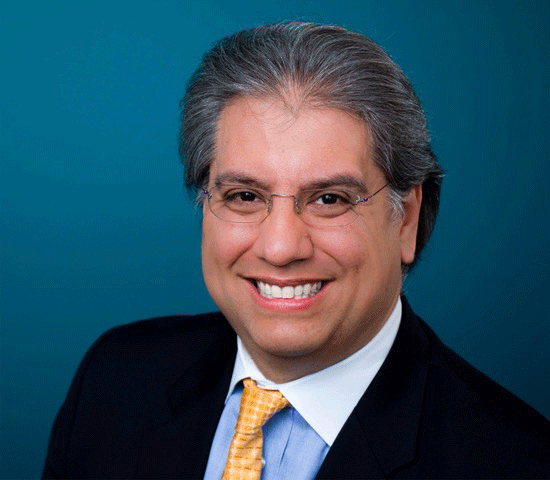
Perfect Storm in Puerto Rico
In 2016, Congress was faced with the realization that its policies, as well as Puerto Rico’s government policies, had created the perfect storm of crises; a health care funding crisis, a debt crisis, with a failed economy, no potential to raise revenue and with no access to markets.
How did Puerto Rico get into such a state of affairs and why do Latinos, and the rest of the U.S., care about what goes on in this U.S. territory in the Caribbean? Have you ever heard a phrase that compares the states as the laboratories of democracy in America? Well, sometimes, Puerto Rico is the very first experiment before States dare to try. That’s why folks around the U.S. need to pay attention to what happens to federal policy on the island, they could be next.
 However, the most fantastic federal funding policy experiment failure in Puerto Rico seems to have found fertile ground in current federal health policy debate, Medicaid block grants.
However, the most fantastic federal funding policy experiment failure in Puerto Rico seems to have found fertile ground in current federal health policy debate, Medicaid block grants.
These block grant ideas for the Medicaid program have been argued to be the best solution to lower federal government costs and to give flexibility to States to use these funds creatively. If only there was a test case somewhere where the federal government provides a fixed amount of health care money, not withstanding need. Yes, Puerto Rico is that experiment.
Economic collapses of Puerto Rico’s magnitude have many parents, both federal and local ones. The current federal experiment has failed. Now, it’s time to fix it. However, Congress is the one with the power to remedy the health funding crisis and current economic situation on the island.
For example, the higher cost of getting goods to Puerto Rico from U.S. ports. It is a burdensome economic challenge, and this heavy weight is only shared by 2 States, Alaska and Hawaii. Other examples of experiments gone wrong: Supplemental Security Income (SSI), Medicare and SNAP. These federal programs operate in Puerto Rico differently than in States, or not at all, creating health disparities issues not faced by U.S. Citizens living in the 50 States.
The Affordable Care Act (ACA) expanded Medicaid coverage for the States, for those that chose to accept it. The States funding was not limited to a block grant. For Puerto Rico that was not the case, the law created a block grant of more than $5 billion that was to last 10 years, it did not. The ACA included funds for Puerto Rico to create a health exchange, almost $1billion, but given the flexibility to use the money instead in the Medicaid program. This was a great infusion of desperately needed funds for the island’s Medicaid program.
Many in the states are not aware, but a large segment of the population in Puerto Rico are low income and its main source of health care is the government public program. Current federal fund allocations are not enough to meet the demand and the Puerto Rico government doesn’t have the money to supplement the over $1billion when the current federal allocation runs out. All the flexibility in the world can’t make an inadequate federal health funding allocation meet the basic health needs of the low-income population.
Let’s look at one more example of how a smaller amount of money, no matter how flexible a State can be to use it, will not be enough to meet the demand of comprehensive health services. All Medicaid state program funding have a federal percentage match of expenditures (known as FMAP). Depending how rich or poor a state is, the federal allocation of that match increases or decreases.
In the case of Puerto Rico, in which more than 1 million people out of its 3 million residents are considered low income and eligible for the public government health plan, that federal match is predetermined by federal law. The irony is that Puerto Rico receives an FMAP rate as if it was one of the richest states of the U.S. So, what does that mean? It means that the Puerto Rico Medicaid program can’t afford to pay, for example, Long Term Care services for low income seniors residing on the island. Basically, that’s saying Puerto Rico had the flexibility, due to lack of funds, to NOT offer an indispensable service for the aging.
What do we learn from this? Don’t let our elected officials at the state and federal level be tempted by the Medicaid block grant quick and easy fix to our health costs problem. In this Congress, there are for the first time 43 Latinos serving in both chambers, representing both parties and even representing districts that are not Latino majority populations. Ask them to press for details of any Medicaid block grant idea, push back against health care cuts across the board and protect the health of our seniors. And, if you don’t want your state’s Medicaid to work like Puerto Rico’s, then please, also ask them to take action and legislate for a Puerto Rico health care fix. Let’s make sure all U.S. citizens, wherever they live in this country, have the same type of health care access.
By Max J. Trujillo